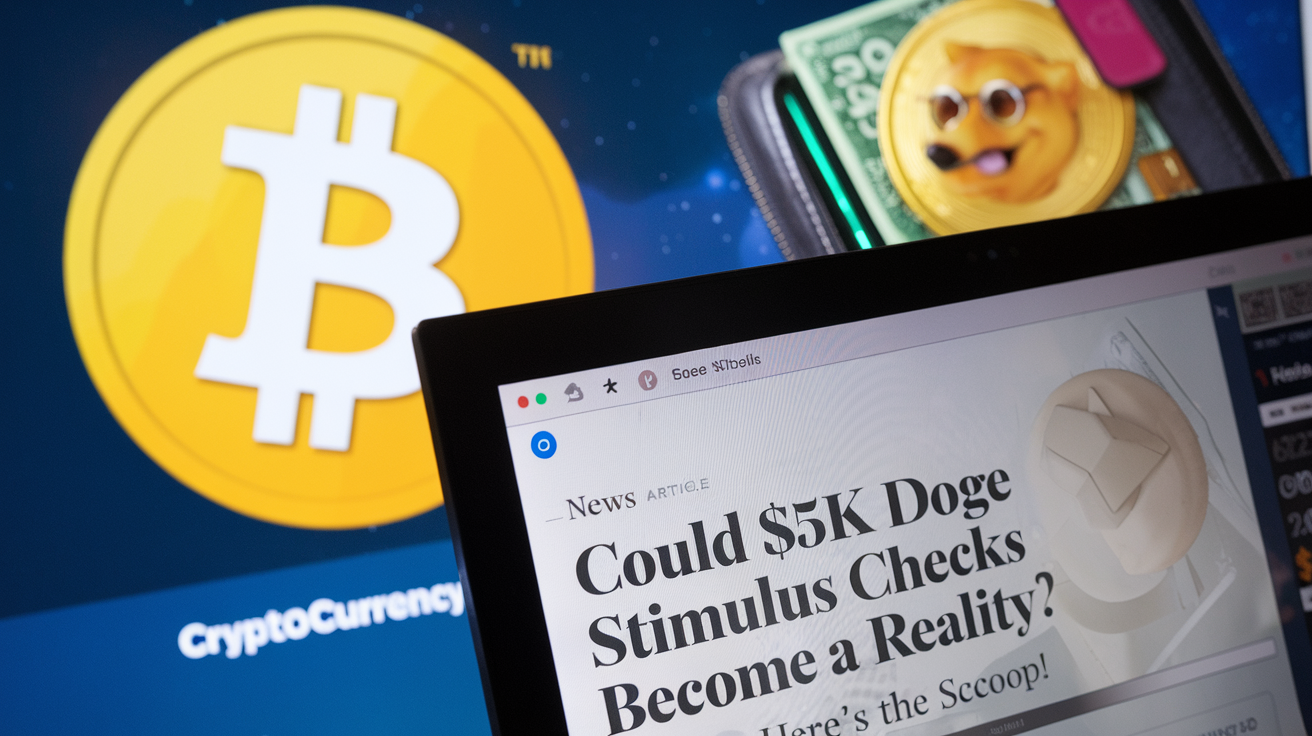Could $5,000 DOGE Stimulus Checks Actually Occur? Here's What We Found
In a stunning move, a plan to send out $5,000 stimulus checks—known as the "DOGE Dividend"—has intrigued policymakers and citizens alike. The idea, led by the Department of Government Efficiency (DOGE), is to return some federal savings to taxpayers. With some big-name supporters such as President Donald Trump and Elon Musk, the question on everyone's mind is: is this too good to be true?
The DOGE Dividend Origins
Incubate Debate founder and Azoria CEO James Fishback was the individual who came up with the idea of the DOGE Dividend. He suggested that the government return some of the savings gained by being efficient to American taxpayers. Elon Musk, who is currently heading the Department of Government Efficiency, was intrigued, reports say, and stated that he would sit down with President Trump to discuss it further.
Formed to find wasteful government spending and eliminate it, DOGE asserts that it has streamlined government expenditures, eliminating wasteful expenditure. But does that automatically mean a huge bonanza for taxpayers?
The Financial Reality: Can the Government Afford This?
DOGE has recovered around $55 billion in savings from the government through fraud prevention, contract renegotiations for lower prices, and asset sales. That may sound astronomical, but independent auditors only approved about $2 billion in savings.
To put some perspective on the numbers, the plan would provide more than 20% of total savings, or roughly $11 billion, to taxpayers. With there being approximately 79 million U.S. taxpaying households, this comes out to a payment of roughly $139 per household—far from the proposed $5,000.
The Political and Economic Challenges
It would take Congressional authorization to make DOGE Dividend a reality. The majority of legislators are doubtful, though. Some believe that whatever savings there might be should go toward paying off the national debt instead of sending it out in the form of payments. Others are concerned with the impact on the economy of injecting so much money into the system, especially when inflation is still an issue.
Economists caution that although stimulus checks are a short-term relief, they can also contribute to inflationary pressure. The latest round of stimulus in 2020-2021 was appreciated for stimulating demand but also was blamed for contributing to increasing inflation. A spending of $5,000 per taxpayer can have unforeseen effects on the economy, making it grow in terms of the prices of goods and services.
Fallout in the Social Security Administration
DOGE's draconian efforts in cutting costs have taken their toll on the federal agencies. Perhaps the most seriously affected is the Social Security Administration (SSA), where personnel reductions and closure of offices have made it more difficult for millions of Americans, particularly the aged and disabled, to obtain access to important services.
Additionally, controversy arose recently when Musk's team asked to see sensitive government information. It prompted a senior Social Security administrator to resign, citing fears over data protection and regulation. With fewer resources and personnel, the SSA is unable to keep up with its workload, giving recipients cause for concern who are dependent on prompt payment and support.
Public and Political Reactions
Although the concept is exciting for some taxpayers who are looking forward to the possibility of getting a $5,000 check, most are not convinced about the concept. Critics argue that the proposal is political rather than an implementable policy.
Its supporters, such as President Trump and Elon Musk, view it as a means of thanking taxpayers for the effectiveness of the government. Bipartisan doubts, however, exist regarding its sustainability and the effects it would have on the overall economy.
Conclusion: A Reality Check on the DOGE Dividend
The prospect of a $5,000 government stimulus check is certainly tempting. However, based on the economic, legislative, and fiscal problems, it seems not to be realized as conceived. While DOGE has succeeded in preventing wastage by the government, the savings might not be significant enough to cover such a huge disbursement.
As the debate rages on, it's absolutely imperative that policymakers and the public critically examine the viability of this proposal. Although giving money back to taxpayers is a great concept, this should be done in a manner that ensures long-term economic stability and serves all Americans.

